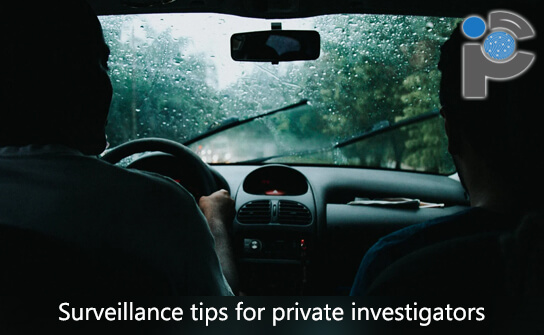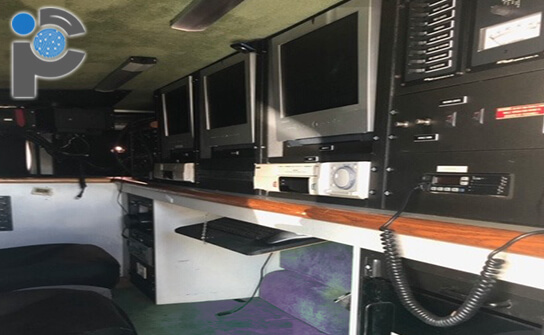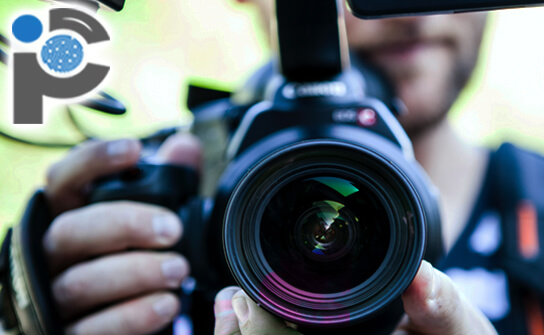Top 20 Surveillance Tips for Private Investigators
March 23, 2021 - Reading time: 16 minutes
Updated on: April 30, 2024
Surveillance one of the ‘bread and butter’ type services that is typically offered by private investigators, and as a leading detective agency based in the UK, surveillance is one of the core services provided by us.
We are able to provide our surveillance service across a wide range of different locations and environments across the United Kingdom. Contrary to private investigators’ depiction in popular TV and films, our work is often mundane and boring. Surveillance operations can often entail waiting in situ for many hours, for a window of opportunity to photograph to the subject which may last seconds in some cases. Maintaining concentration for the duration of a surveillance operation is key to reaching a successful outcome.

With that in mind, we have put together these top 20 surveillance tips for private investigators.
1. Do your homework
Before conducting surveillance, it's important to do some pre-investigative research on the subject, their lifestyle, and any places they are likely to visit during surveillance. Be sure to ask the client a set of questions which provides as much information as possible, specifically details which could aid in identifying the subject or predicting their movements, including any locations they are likely to visit.
Additional clues, or information on the subject's movements can be collected from their social media in many cases. Building a collection of social media accounts which can be used to befriend the subject can aid when performing this type of pre-investigative research.
2. Dress appropriately
After you have "done your homework" on the subject and any location they are likely to visit, you will be able to prepare yourself with suitable attire. This may seem like a trivial point but is in fact very important whilst conducting private investigations.
If you are going to be conducting surveillance on a beach, for example, then wearing a pair of jeans in this setting would not be appropriate. Remaining discreet whilst wearing clothes that are not appropriate for the situation can be extremely difficult, this is why it's important to understand the location of the assignment and choose clothes which will match that environment.
3. Keep your vehicle discreet
Vehicles which are being used during surveillance assignments should remain as plain and boring as possible. That means no stickers, no chrome accessories, and no engine or exhaust modifications which could make the vehicle louder. Even the smallest alteration to a vehicle has the potential to stick in a person's mind and help them to remember it at a later date. Keep your vehicle clean and repair any marks such as dents or scratches.
Keeping your vehicle discreet also means ensuring that you cannot be seen inside. We recommend blocking your windows with cardboard or foam cut-outs which are shaped to the size of your windows and covered with black fabric.
For more information on surveillance vehicles, check out our blog posts What type of cars do private investigators drive? and Window tint used by private investigators.
4. Conduct social media research
With many people choosing to share a surprising amount of personal information about themselves on social media, using these platforms to gain more information about a subject before conducting surveillance assignments is a common tactic used by private detectives. Many detectives will also research the subject's social media profiles whilst waiting in situ during the actual surveillance.
Often the smallest detail can act as a vital clue whilst conducting surveillance, and we have lost count of the times that social media research has benefitted the course of an investigation. A competent detective should endeavour to use all information available to bring about the best possible outcome, and social media is another tool which can be utilized to our advantage.
5. Get setup straightaway
Before conducting surveillance, you should already have a good idea about the best vantage point or position where you intend to park up and wait for the subject; this again falls back on our first point of conducting pre-investigative research.
Using tools such as Google Maps, Street View, or by making a visit to the location before conducting surveillance, can all help to build an idea about the best place to wait, photograph the subject, and/or begin a vehicle pursuit. Figuring out the most likely route the subject is likely to take can also aid in deciding how to position your surveillance vehicle.
You should be prepared with this information, and already having it to hand before conducting surveillance will help you to get setup and in position straightaway. Getting setup straightaway can help to mitigate suspicion which might otherwise be aroused by curtain-twitching neighbours.
6. Pay full attention at all times
Private investigation is a profession which few people experience or understand… Often is the case that we will be waiting in position for several hours for a window of opportunity which could last only a few seconds. Whilst we are conducting surveillance it is imperative that the agent pays full attention at all times, in order to react quickly and secure the "money shot".
Getting distracted by playing games on your phone or watching videos has the potential to jeopardize the success of a surveillance operation. All agents must remain focused and alert at all times, with one eye always focused on their surroundings.

Photo: Even in a purpose built surveillance vehicle such as this one, the agent operating inside this vehicle must remain alert and pay attention to their camera monitors at all times.
Our surveillance agents often keep themselves amused during surveillance assignments by listening to podcasts or music to try and fight the boredom whilst remain focused for several hours at a time.
7. Assess all potential outcomes
Whilst we are setup and waiting for a subject, we often use our imagination to try and predict all possible outcomes. For example, the subject might own a car which we anticipate that they will use, but could they choose to make their journey on foot instead? Might they use a bicycle or another mode of transport? In which direction are they likely to travel?
Unforeseen events can take place all the time, and especially whilst surveillance is being conducted. Assessing the situation, predicting all possible movements of the subject, and planning for how to deal with those potential eventualities, would be a trait of a competent private detective.
8. Identify distinctive features on the subject’s vehicle
Being able to recognise your subject’s vehicle at a quick glance can be an important ability whilst conducting surveillance. In order to improve your ability to quickly recognize their car, we find that it helps to identify and note down any distinctive features.
Distinctive features on a vehicle could include anything from the type of wheels that are fitted, whether the car has window tint, missing hubcaps, dents or scratches, chrome accessories, roof rails, badges… You get the idea. Being aware of any unique features, no matter how small, can really help to identify a vehicle, especially if you’re only able to see the car from a distance or at a side angle.
9. Be conscious of your surroundings and appearance
Whilst conducting surveillance, it’s important to remain conscious of your surroundings, your appearance, and whether you are blending in with your environment.
Firstly, don’t stare at people or their properties. Anyone that stops and stares will instantly be looked at with suspicion. Similarly, don’t loiter or park your vehicle near schools. Park in discreet locations, remain hidden inside your vehicle, be conscious of your surroundings and try to blend into them as much as possible.
10. Keep your cameras hidden
A person that is taking photos with a digital camera or camcorder will generally attract more attention than someone taking photos with their smart phone. Many people spend a considerable amount of time each day holding their phones, and they can be used to take photos/video far more discreetly than with professional camera gear.
Hidden cameras can also be useful in a number of different settings, and most competent detectives will have an arsenal of discreet cameras to choose from.
Whatever your environment, using professional camera gear will generally arouse suspicion from most members of the public, so whether you are on foot or inside a vehicle, try to keep your camera gear hidden at all times.
11. Be prepared for a long and boring day
Conducting surveillance can be an exhausting task. Monitoring a property and waiting for a subject often involves sitting in position for several hours, whilst maintaining focus on the subject’s property and waiting for them to leave.
Occasionally surveillance assignments can take unpredicted paths, and our client may wish for us to work overtime in order to capture more incriminating evidence. It is therefore essential that our agents are fully prepared for the length of surveillance that we are instructed to carry out, and potentially for even longer periods of time.
Make sure that you are fully prepared with suitable food, drinks, and that all of your devices are ready and good to go. While caffeine products such as energy drinks might be tempting to help keep you awake, they usually result in comedowns where you might find it more difficult to maintain attention. We recommend avoiding the consumption of any caffeine products whilst conducting surveillance.
12. Have a notepad and pen handy
This may seem like a trivial tip, but having the ability to quickly jot down notes can often prove beneficial during surveillance assignments. It’s important to record the times at which key events take place, or any small details which you might otherwise forget, as these points will prove to be critical information when later writing a report for the client.
Some surveillance agents even use voice recorders to record their notes. While voice recorders are usually quicker than manually writing onto a piece of paper, they should not be used in situations where the agent may be overheard by the subject or any onlookers.
13. Check your equipment
Before going out on a surveillance assignment, it would be wise to check all of your equipment. Check that all of the devices you might need are fully charged, and that they have enough memory available for the task at hand. Bringing spare memory cards can be useful in some cases, though in the current day and age high-capacity memory cards are very affordable and there shouldn’t be a need to switch out memory cards whilst conducting surveillance in most cases.
Remember to also check the time and date settings on your camera equipment to ensure that the timestamps are as accurate as possible.
14. Bring a change of clothes
In many surveillance cases (especially those which are taking place on foot), it can be a good idea to alter your clothing somewhat in order to make yourself less memorable to the subject.
It also pays to have spare clothing to ensure that you are comfortable, and suitably warm or cold, as the weather may dictate, during the assignment.
15. Keep binoculars or a monocular
If you decide to carry a pair of binoculars, or a monocular, inside your vehicle, then you might find yourself using it surprisingly often. For example, if you are trying to observe a person’s clothing from a long distance, or identify a subject as they approach from far away, or even checking a vehicle’s license plate number.
Although surveillance agents should obviously seek to avoid being seen using binoculars or a monocular, they can come in useful and are a good tool to have on hand in many different settings.
16. Fill up with fuel and use the rest room
Before arriving at a surveillance assignment, it would be a good idea to fill up on fuel and use the rest room, making sure that you are comfortable and prepared for whatever may occur during the assignment.
17. Maintain a safe distance
One of the most common mistakes made by rooky private detectives is not maintaining appropriate distance from the subject’s vehicle or property. Parking directly outside the subject’s property should be avoided in most cases… Most people will notice a vehicle they have not seen before parked directly outside their house, and a surveillance agent will seek to avoid this unwanted attention wherever possible. If a vehicle the subject has never seen before is instead parked outside their neighbour’s house, then it will be more plausible that the vehicle is visiting that particular house, and the subject will be less likely to remember the agent’s vehicle.
This point is highly dependent on the circumstances, as there are cases where an agent will need to remain very close to the subject or their vehicle/property in order to conduct surveillance and secure the best possible evidence.
18. Consider whether more agents are needed
While a lone detective can prove very effective in most cases, there are certain cases which will require multiple agents working at the same time in order to secure the best possible outcome.
Detective agencies are sometimes reluctant to explain the need for additional agents to their clients… With cost a consideration for most people, they may not wish to spend extra money hiring more detectives. However, if we believe that using multiple agents will produce better evidence, then we feel it’s important that our client is fully aware of this. Continuing with one agent when more manpower is required may end up prolonging the investigation and costing more money in the long run.
19. Always bring a tripod
As private investigators, our clients rely on us to gather the highest quality evidence possible - we usually capture at least 720p or 1080p video, or even 4K video in some cases.
One of the most important considerations when shooting video is that the camera remains stable, using a tripod or an anti-shake gimbal can help to keep your camera steady and ensure that the footage is smooth and crystal clear.

Consider which positions you are likely to shoot video from in your vehicle and setup your camera on a suitable tripod or gimbal.
20. Don’t forget your pee bottle!
It’s a matter of human nature that liquids which are consumed will eventually need to make their way out of the body. While conducting surveillance for multiple hours, the agent will typically seek to remain inside their vehicle and not leave for toilet breaks for the duration of that time. We will leave the rest of this particular point to the reader’s imagination!
Free private investigator resources
If you enjoyed reading this post, then check out these related articles:
You are reading the PrivateInvestigators-UK blog — home to the UK's leading detective agency. Learn more about us by visiting our homepage PrivateInvestigators-UK.com.